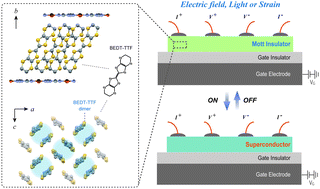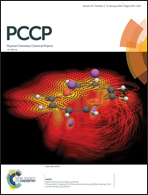Field-, strain- and light-induced superconductivity in organic strongly correlated electron systems
Abstract
Stimulated by the discovery of high-temperature superconductivity in 1986, band-filling control of strongly correlated electron systems has been a persistent challenge over the past three decades in condensed matter science. In particular, recent efforts have been focused on electrostatic carrier doping of these materials, utilising field-effect transistor (FET) structures to find novel superconductivity. Our group found the first field-induced superconductivity in an organic-based material in 2013 and has been developing various types of superconducting organic FETs. In this perspective, we summarise our recent results on the development of novel superconducting organic FETs. In addition, this perspective describes novel functionality of superconducting FETs, such as strain- and light-responsivity. We believe that the techniques and knowledge described here will contribute to advances in future superconducting electronics as well as the understanding of superconductivity in strongly correlated electron systems.

- This article is part of the themed collections: PCCP Perspectives and 2018 PCCP HOT Articles


 Please wait while we load your content...
Please wait while we load your content...